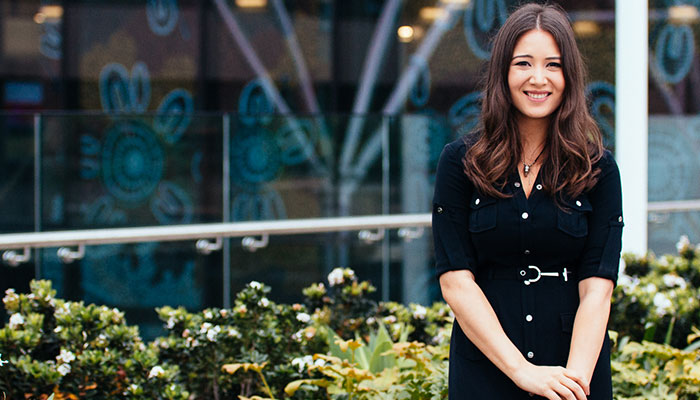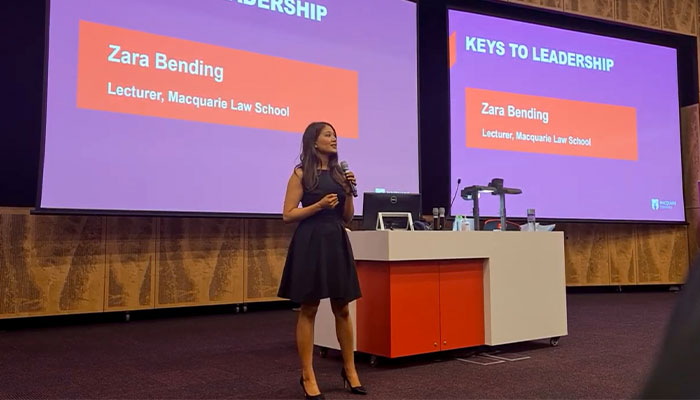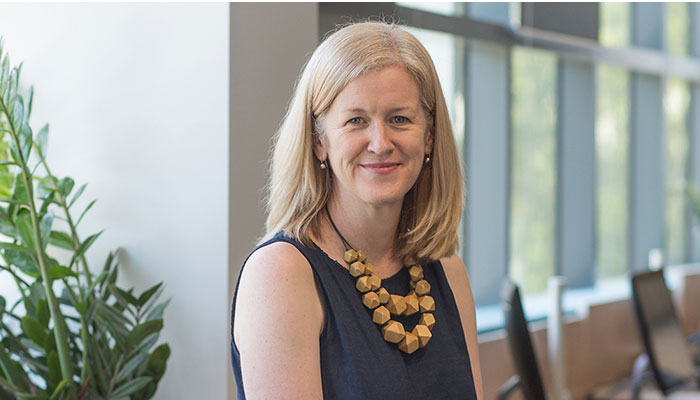Teacher: Zara Bending (pictured), lecturer at Macquarie Law School, and an Associate at the Centre for Environmental Law.

Groundwork: Zara teaches Foundations of Law, criminology, policing, criminal law, civil and criminal procedure, climate change law, environmental and health law.
Gold stars: Zara was nominated by her students and peers for Vice-Chancellor's Learning and Teaching Awards in 2019, 2020 and 2021. In 2020 she was one of five academics to win the Student-Nominated category which had received 2000-plus nominations. She also received Faculty of Arts and Vice-Chancellor's Learning and Teaching Awards for Programs that Enhance Learning in 2013. Zara was recently awarded a national level citation by the Australian Awards for University Teaching. Her citation is ' for inspiring the next generation of legal scholars, advocates, and changemakers through holistic mentorship and transformative learning design.
How Zara’s students describe her: Well-informed, intelligent, a communicator, empathetic, passionate, empowering, inspirational, a mentor.
What Zara says:
Teaching in the 21st century is very different. Since Covid-19, we've tried not to change our purpose or mission, we've just adapted the means by which we deliver it. We aim to provide transformative experiences that enrich students’ lives. We still have core knowledge and skills to impart, we still have learning outcomes and graduate capabilities to achieve.
Teachers have had to become more personable – we’ve literally been in our students’ homes and they've been in ours. On Zoom we all take up the exact same amount of space in gallery view. We can all type something into the chat at any time so it has forced the classroom to become more horizontal in hierarchy. It promotes a co-operative model of learning.
Today’s student is having to process existential crises: a pandemic, mass extinction, climate change, a 24/7 news cycle, social media … and they still have to, at the end of the day, attend a tute. Our teaching should help them work out where they sit amongst all that and empower them.
I’ve been called a ‘Zoom Queen’ but I use a variety of mediums – and tools such as tables, infographics, podcasts, graphs, even meme battles – to keep things dynamic and engaging. I've come to appreciate that distinction between communication as intended versus communication as received versus communication as understood.

Centre stage: Zara Bending says her teaching borrows much from performance.
Communication is our superpower as teachers, whether verbal, nonverbal, virtual, in person, written, oral. There are so many variables that affect whether information received by a student remotely resembles what we intend as educators, especially when Zoom fatigue, mood, boredom, and mental health can affect how information is interpreted.
What we never lose sight of is that we're not just facilitating learners, we're facilitating decent human beings. It’s important to reorient students to their intrinsic motivation for studying law or criminology, and to think about what their dream career could look like at the end of all this.
If my class is laughing with me, I know we have a strong baseline of understanding.
There are things I’ll treasure and hopefully retain from these pandemic days. I'm a lot more mindful of learners who are neurodivergent. I love the Zoom chat function: it’s such a fun and inclusive way for a class to engage in real time and give me feedback. When we are back to ‘normal’ I do want to keep some of the gamification, through video game apps like Kahoot!.
My teaching borrows much from performance. I went to see American stand-up comedian Steve Hofstetter in Sydney in 2020 during the bushfires. The way he read the room, connected to our experience, and had us laughing in the midst of absolute tragedy taught me a valuable lesson: "You have to put the work in and reach the audience wherever they are at a point in time". I've definitely applied that lesson throughout the pandemic.
The great thing about teaching with humour is that to understand the premise and the punchline, students must understand the content and its context first. If my class is laughing with me, I know we have a strong baseline of understanding. And I don't hesitate to bring my passions – fighting wildlife crime, for example – to the classroom or embed storytelling and my own experiences into my teaching.
How would I like my students to view me? As a former non-traditional law student from western Sydney, it means the world to me to be regarded as a mentor and someone who celebrates representation. I'd like to be viewed as a teacher who believes and invests in her students because they matter as individuals.



